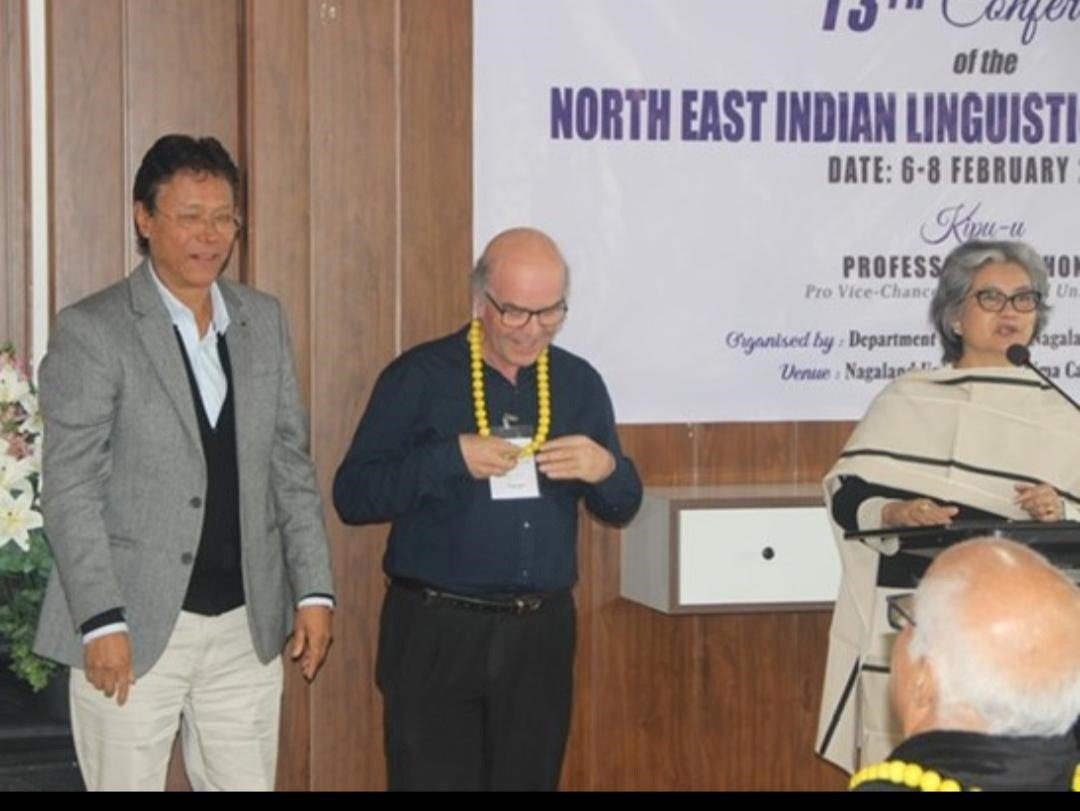The inaugural of the 13th Conference of the North East Indian Linguistics Society (NEILS) was held on February 7 in Nagaland Univeristy’s Kohima Campus.
Attended by a total of 65 registered participants from the North East, mainland India and from across the globe, Prof. G.T. Thong, ProVice-Chancellor, Kohima Campus graced the occasion and exhorted the participants to actively conduct research on the languages of Nagaland and the North East. Two founding members of NEILS, Prof. Jyotiprakash Tamuli (Gauhati University), and Dr. Stephen Morey (LaTrobe University) also participated in the conference. The welcome address was given by Dr. Petekhrienuo Sorhie, Head, Dept. of Tenyidie, which was followed by an introduction to NEILS by Dr. Stephen Morey. The plenary talk was delivered by Prof. Jyotiprakash Tamuli on the topic “Raising the stakes: linguistics in education”.
The conference being hosted by the Dept of Tenydie will conclude on February 8. It may be stated that the North East Indian Linguistics Society (NEILS) was founded by Jyotiprakash Tamuli (Gauhati University), Stephen Morey (La Trobe University), and Mark W. Post (University of Sydney). From 2007 to 2012, NEILS conferences were held annually, and then afterwards biannually starting from 2014. The conferences are usually held in Assam either in the month of January or February.
Download Nagaland Tribune app on Google Play

The first NEILS meeting was held at the Phanidar Dutta Seminar Hallat Gauhati University during February 6–7, 2006. Subsequently, most of the conferences were held at Don Bosco Institute (Don Bosco College of Engineering & Technology), Guwahati. Regular attendees have included Robbins Burling, Scott DeLancey, George van Driem, Gwendolyn Hyslop, and other linguists.
The primary focus of NEILS Is the description of the rich cultural-linguistic diversity that exists in North East India. The papers at the conferences have a primary descriptive component, with a functional-typological or anthropological-linguistic perspective. Papers concerning languages spoken in the areas of Myanmar, China, Bhutan, Bangladesh and West Bengal that border the North East are also considered.

